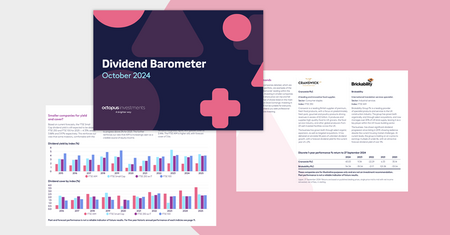Better client-outcomes are key for any business
Misconceptions and age-old stereotypes can make it feel as though financial advisers are from Mars and accountants are from Venus, but, when it comes to the crunch, they all want the same thing: to provide an out-of-this-world service to their clients.
Building professional connections can sometimes be a difficult area to navigate, with plenty of myths and misconceptions muddying the waters, leaving both accountants and advisers apprehensive about working with one another. But those that are willing to look beyond the differences will find there is plenty of common ground.
The biggest and most important trait accountants and advisers share is wanting to achieve better outcomes for their clients. Providing advice in silos just won’t cut it.
From a client’s perspective, it’s best when their advisers are joined up and talk to each other. It means more effective advice, which can save the client from repeating themselves, and can even prevent ‘blind spots’ in the advice given.
Fostering stronger professional connections with accountants
In order to deliver integrated advice, there have to be integrated relationships between accountants and advisers.
Successful professional connections are built on solid foundations of trust, communication, empathy, mutuality of interest, and reciprocation.
To help ensure relationships with accountants are successful, there are a number of steps advisers can, and should consider:
1. Do your research
The first step is to do your research on a prospective accountancy connection – both the individual contact and the firm itself. This includes understanding their client base, the regulations they must adhere to, and the typical business they conduct.
This will ensure you reach out to the right accountants, and when you do that you are able to show greater understanding and empathy for what drives their business model, the constraints they may come up against, and ultimately how to structure your approach.
Also, on an individual level, what can you find out about them? Whether it’s through LinkedIn, their firm’s website, or client reviews on TrustPilot or Unbiased – all of this information will help when reaching out to them initially.
2. Network, network, network
Once you know what type of firm you are looking to connect with and the individual contact that is right for you, then the networking begins. You will have done your research, so this will help tailor that initial approach – perhaps you have a mutual contact, or a similar client base.
Admittedly, networking takes a different shape than in the pre-Covid-19 era. While Zoom calls aren’t most people’s first choice, we are all now well adept at operating in the virtual world and advisers shouldn’t be put off arranging video calls with potential connections.
The means of communication may have changed but the value of these connections certainly has not. Research from Octopus Investments* found that advisers who actively seek professional connections see a four-fold increase in referrals – a significant opportunity for an increase in business that an inability to meet face-to-face should not hold up.
3. Respect client relationships
Another key building block to developing long-lasting connections is to respect the client relationships the other professional has fostered. It takes a great deal of trust to let a financial adviser into a relationship. Octopus’ research showed the largest barrier for accountants in developing relationships with advisers was poor client experience; but this is your opportunity to demonstrate your ability to go above and beyond to look after clients.
Communication is vital to building that trust, so you should set out the parameters of the relationship from the start and refer back to them throughout.
Building professional connections is also a process that needs to be reassessed and tweaked, and will therefore take time. It may take months from the initial meeting to develop a referral, and then many years to develop a solid relationship, but do not be disheartened, the resulting benefits will be well worth the time investment.
Remember, patience is a virtue and once you start to build relationships with accountants, you’ll realise they’re certainly not from another planet, and by working together you can build stellar outcomes for both your clients, and your businesses.
For anyone looking to find out more about the ICAEW’s PFP Community – a collaborative resource for anyone interested in personal financial planning – please click here.
*The power of professional connections and how to harness it, Octopus Investments, November 2020






